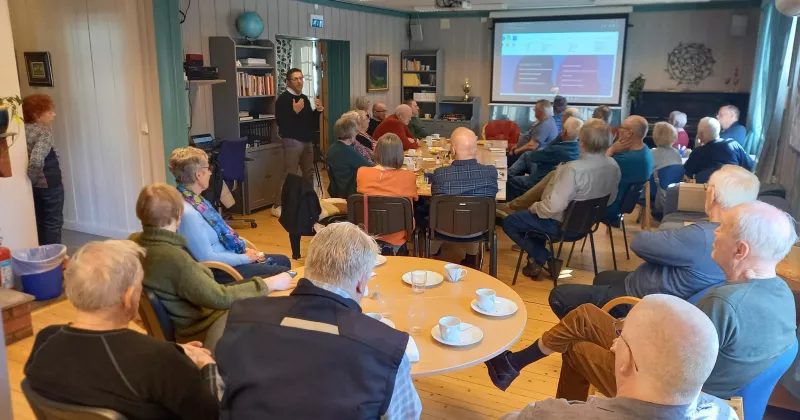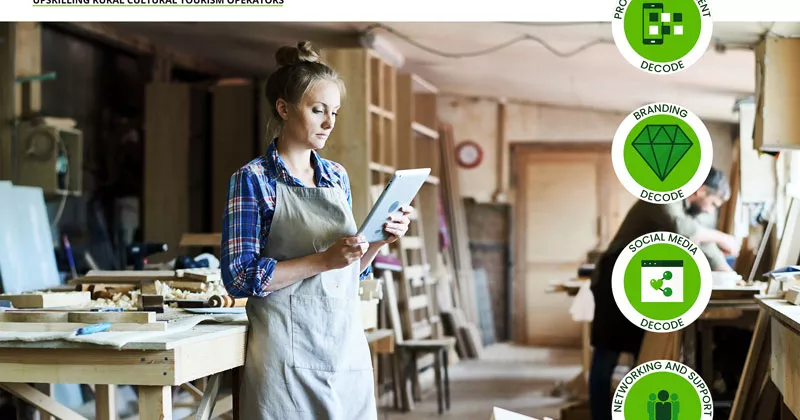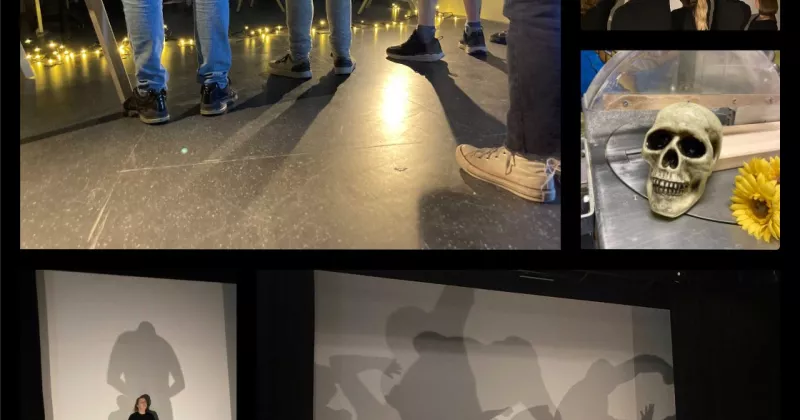Is the age of the learner a special need?
This blog post was originally published in Estonian by Kaire Viil

Photo from: areadne.eu
When communicating with the clients of the trainings, I have noticed several times a kind of apologetic remark: "You know, older people are also comeing to the training". I do not consider a person's age to be a special need. If there are many different people in the group, then the time learners and the trainer spends together is rather is rather enriching. Why doesn't the clients warning about a more experienced learner make me cautious? I would like to recall these experiences when I started my career I was also a learner in those days. I admired the gray-headed classmates for their self-confidence, intelligent thoughts and self-knowledge. I didn't have any professional real-life experience after graduating from the university, but I did have a lot of rich connections in my brain.
Good experiences are worth sharing
Experienced learners know and want to communicate during the training day, and their shared experiences and examples will be remembered by both the trainer and other learners in the group. Sharing thoughts and having valuable communications gives learners of all ages a sense of success and happiness. Feeling competent is an important motivator for learning and the trainer should use every opportunity to allow learners to show competence. When a person can express his / her opinion and thoughts in a different way in learning, it increases his / her sense of autonomy, which also increases the will to learn.
We break attitudes in the training room
My experience shows that intergenerational learning is a great way to break age stereotypes. At the beginning of the new semester, the students of TalTech Virumaa College recalled the joint digital skills training held at Virumaa Folk College last spring. Students gained experience in public speaking, and the elderly learned to excessively clean their computers and smart devices. Students remember this as a great experience of learning digital skills and gaining the courage to express themselves. The elderly digitaly-whise promised to inspect all the family's computers at home and to do digital waste cleaning work. Willingness and readiness to learn does not depend on age. People's life expectancy is increasing and there are more years of active life. This inevitably means constantly learning new skills, and fortunately there will be even more senior students in the future.
What should be considered with elderly learners?
Physical and social well-being is important for every learner, but older people need to have a comfortable chair and exercise needs to take into account that not everyone may be able to stand up for a long time. The learner feels more secure when he or she knows what lies ahead and what he or she should do during the school day. Many people have an initial distrust of new modern teaching methods. It is not worth planning too many different work methods for a training day.
Older people feel confident when the learning pace is right for them and the learning material is moderately complex. Finding out such material ensures a long-term experience of success and happiness. Chocolate produces happiness hormone in the brain for a few minutes, but learning and applying new skills in real life makes a person happy for a long time. 75% of the learners are visuals, and in the case of designing study materials for senior learners a larger font size should be considered, as well as giving the correctly sized bite for learning. These principles are useful in preparing and mentoring all trainings.
Older learners acquire new information and work methods more slowly, but there is no special need. In order to gain skills, people of all ages have to practice a lot and reflect on their learning activities, and we learn the best from mistakes. For example, the inventor of the vacuum cleaner, James Dyson, performed a 5127 test before the machine started working as desired. He got closer to his goal with each experiment, just like time-consuming practice will lead to life-changing results.
People involved in training should not emphasize someone's age when learning. Due to the rapid changes in society, lifelong learning is a manner of thought and a way of life for vigilant people of all ages. Curiosity, activity, and learning with a spark in ones eyes does not depend on a person's age.
--
Kaire Viil is a 7th level certified adult trainer, a lecturer, and a leadership coach at TalTech University. Her company Selged Sihid OÜ offers coaching and training services for self-development and trainers.






Cilvēki ar pieredzi - ieguvums mācību procesā